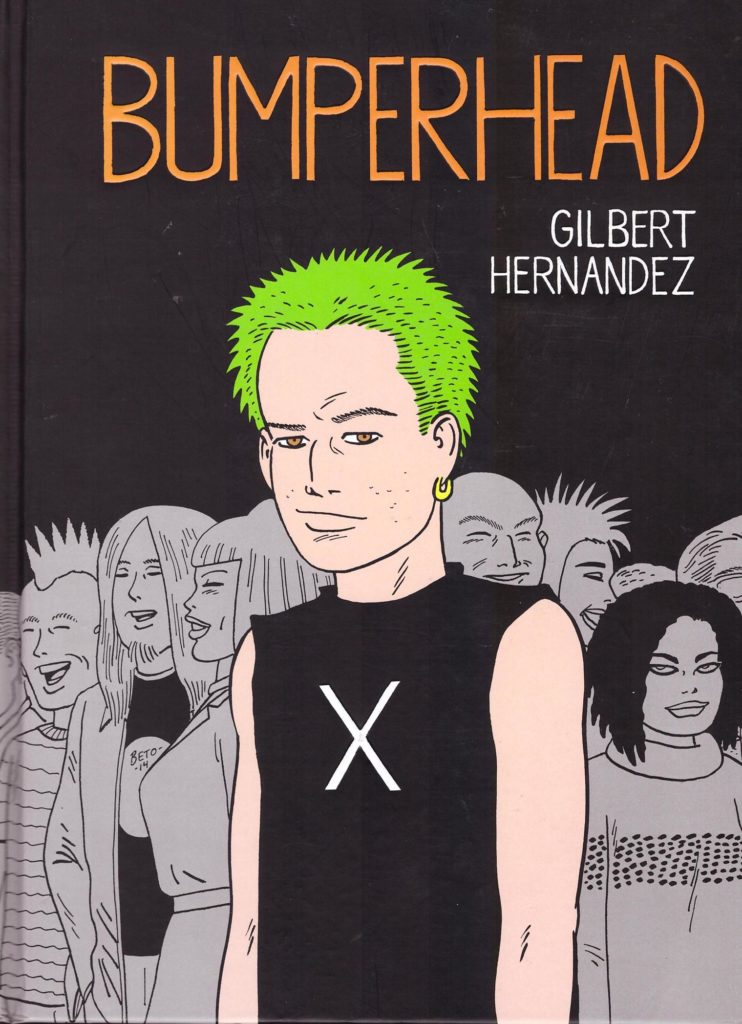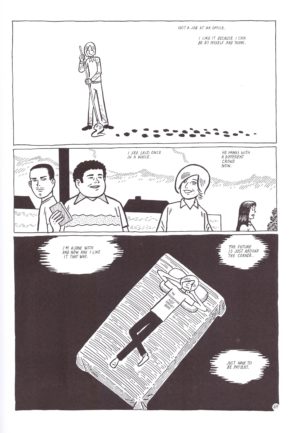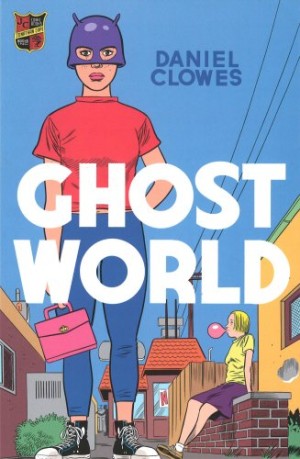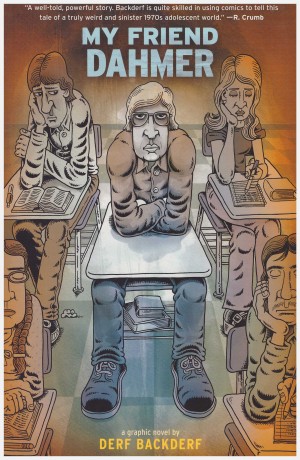Review by Frank Plowright
Bumperhead looks back to suburban youth in the 1970s, with an epilogue chapter decades later as closure. Bobby is Bumperhead, cruelly taunted as such by neighbourhood louts due to the top of his head bulging when he’s young. He’s rather aimless, but then that’s a family trait, his father talking little about work, and his mother seen as counting the minutes to her next cigarette.
While the narrative is ostensibly a straight parade from the late 1960s forward, Gilbert Hernandez throws in the deliberately unsettling anachronism of Bobby’s pal having an iPad providing glimpses of the future. Maybe it’s to distract from how much Hernandez is trawling through his own 1970s experiences, although also used to comment on a lack of imagination. Lalo has this fantastic device with a considerable portion of the future at his disposal, and he uses it to view pictures of nurses crapping, or atrocities. Without it, would he become Jeffrey Dahmer?
That teenage mixture of absolute certainty and insular insecurity is articulately conveyed, as is the redemptive power of music. However, Hernandez keeps a distance. Bobby wanders through life in a series of elegantly drawn black and white panels, never committing, passively accepting life as it happens, only music and the silence of his father able to move him to passion. There’s a sense of Hernandez considering some people’s high school days shape their lives, particularly if those lives continue to be lived in the same neighbourhood.
The art is deliberately a little wooden, people given fixed expressions as they conceal their inner thoughts, and Bumperhead only really moves beyond walking pace during a couple of concerts. For all that, the cast are well designed and distinctive, Hernandez having fun with the 1970s fashions.
Neat little observations are present, but although Bobby explains himself, sometimes articulately, he doesn’t actually have much to say, which ensures he’s not a compelling protagonist. Combine that with a series of listless events, and it leaves Bumperhead as true to its cast, but without the depth of Hernandez’s Palomar stories or the wackyness of his b-movie pastiches.





